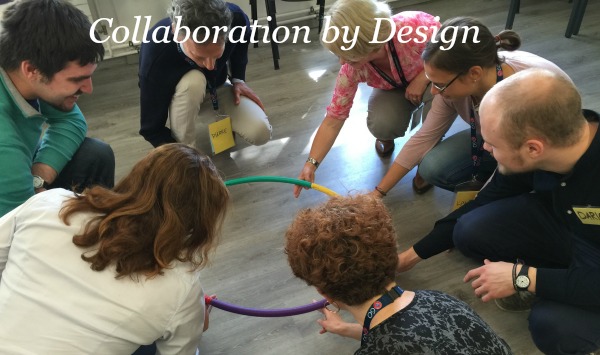Game plan – using games for effective learning

How do you keep a workshop of 30 people focussed and engaged when exploring a complex issue such as climate change or explaining dry internal procedures an organisation must adopt? What are some effective ways to highlight collaboration or performance issues and opportunities in a team’s work together?
We as facilitators regularly face these types of challenges and have a range of tools at our disposal to address them. But one that is perhaps underexplored is the rich world of games that can help people learn experientially and enliven the driest of topics. Simple participation games, demonstration games, simulations, quiz-based activities, role play and problem-solving exercises are just some examples of the many games that can be used for diverse purposes in equally diverse settings.
Games can range from a simple one-minute, thought-provoking icebreaker (sometimes called a ‘jolt’) to a half-day simulation exercise to help go deeper and understand a complex issue. Lizzie and I use games extensively in workshops – for team building, conveying key messages or lessons learned, problem solving, breaking down barriers or simply invigorating a stagnating discussion.
Experiential games help a group ‘learn by doing’ rather than by more passive methods such as theoretical discussions. They can be powerful when conducted in ‘discovery mode’ – where people do not know exactly how to play or ‘win’ at the outset. A carefully designed quiz or treasure hunt can help a group learn about another organisation in a way that’s far more engaging than listening to a corporate presentation! One game we find really effective is Fishbanks, a computer-assisted board game which helps groups understand the complexity of resource management from multiple perspectives. Or there’s Green & Great that helps players explore the business transition to sustainability.
There are games to suit all group sizes: mass games that can be played in a conference of 2,000 people, demonstration games that a small group can play while others watch, or participation games suited to groups of up to 30 people. A great source of hundreds of free ‘serious games’ is the Thiagi Gameblog (‘improving performance playfully’) – we highly recommend it!
As with most other elements of facilitation, games must be tailored according to group dynamics and cultural differences. We rarely use ‘off-the-shelf’ games but rather adapt an existing one to a particular group or objective, or design our own. Some people may be put off when they see ‘games’ on the agenda, seeing them as silly or irrelevant. So it’s important that the value of the games is explained and a thorough debrief is factored into your session plan, and perhaps change the title to ‘management exercise’!
Read more…
- The Climate Change Playbook: 22 Systems Thinking Games for More Effective Communication about Climate Change
- The Systems Thinking Playbook: Exercises to Stretch and Build Learning and Systems Thinking Capabilities
- Make a game out of any workshop topic – design your own game: test it, time it, add drama, give prizes!
- New Systems Thinking Game: The flashmob game – an interesting way to highlight the invisible connections people make during a workshop



Leave a Reply
Want to join the discussion?Feel free to contribute!